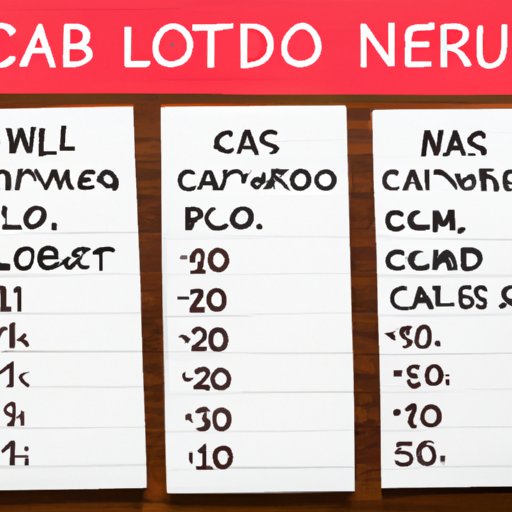
Introduction
Are you struggling to lose weight despite your best efforts at the gym? Have you ever considered the role carbohydrates play in your weight loss journey? Contrary to popular belief, not all carbs are bad, and some can even aid in weight loss. This article sets out to explore how many carbs you should consume to lose weight healthily.
Understanding the science behind low-carb diets and weight loss
Low-carb diets have gained popularity in recent years, and for a good reason. By limiting your carb intake, your body utilizes stored fats for energy, leading to weight loss. Reducing your carb intake has several benefits for your body’s metabolism, such as regulating blood sugar levels and reducing insulin production. Research has shown that low-carb diets can help reduce hunger pangs, making it easier to stick to a calorie-controlled diet.
Low-carb substitutes for high-carb foods
One major concern with reducing one’s carb intake is the fear of missing out on delicious foods. However, several low-carb substitutes can satisfy your carb cravings while aiding in weight loss. Leafy greens such as spinach, kale, and broccoli are low in carbs and high in much-needed nutrients. Incorporating protein sources such as chicken, eggs, and seafood, apart from bread and pasta, can help reduce carb intake while ensuring you remain full. Healthy fats such as avocados, olive oil, and nuts can also be used to replace high-carb foods.
The importance of tracking carb intake and tips on how to do it effectively
Tracking your carb intake is vital to ensure that you remain within your daily carb goal. Keep a food diary and track your daily carb intake while aiming to stay below your carb limit. Several apps can help track your carb intake, such as Carb Manager and MyFitnessPal. Meal planning is also an essential factor in ensuring effective carb intake monitoring.
Examples of low-carb meal plans that are easy to prepare and provide sufficient nutrients for weight loss
Following a healthy low-carb meal plan can make all the difference in your weight loss journey. It is recommended that low-carb diets contain 20-100g of carbs per day, depending on your weight loss goals and body type. Incorporating vegetables, protein sources, and healthy fats can help you stay full without exceeding your daily carb limit. Examples of low-carb meal plans include salads with grilled chicken, bacon-wrapped shrimp, and zucchini noodles with pesto sauce.
Tips on how to gradually reduce carb intake to avoid drastic changes that could negatively affect the body
Sudden changes in carb intake can lead to several side effects such as headaches, nausea, and fatigue. To avoid these, gradual changes to your carb intake are recommended. Starting by eliminating processed foods and sugary drinks, and replacing them with healthier options can help ease the transition. Over time, you can gradually reduce carb intake without negative side effects.
Conclusion
Reducing your carb intake to lose weight is achievable and can even be enjoyable. By replacing high-carb foods with healthy options and monitoring your carb intake, you can achieve your weight loss goals and improve your overall health. Incorporating a balanced diet and workout routine is vital to living a healthy lifestyle and achieving long-term weight loss success.




